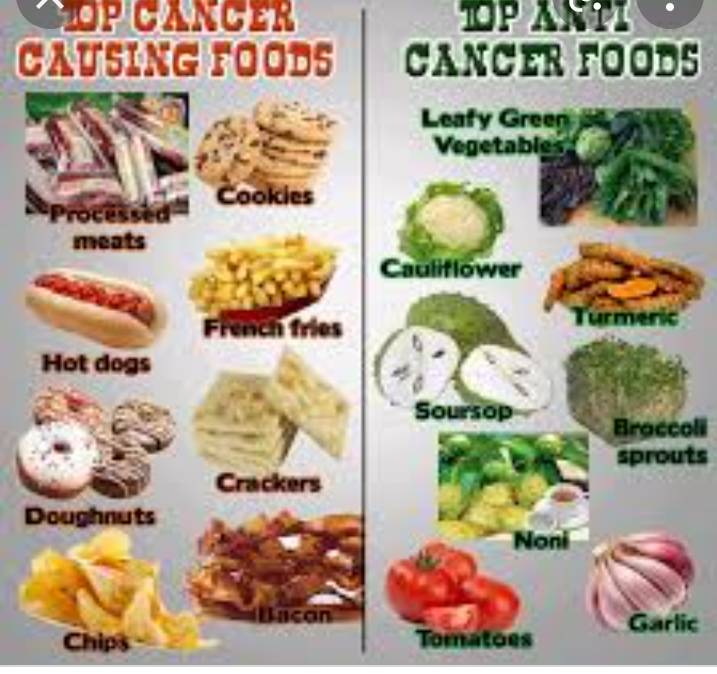Before you take a big bite of that juicy burger or sprinkle cinnamon on your morning oatmeal, you should know that you might be consuming chemicals that have been linked to cancer. That's right; the FDA hasn't banned all toxic ingredients quite yet.
Part of the reason these chemicals still exist in our food is that they have shown conflicting results in studies. For example, the artificial sweetener Aspartame, found in many soft drinks, has long been debated as a potential carcinogen. While a recent 2021 study published in Environmental Health reported that Aspartame causes cancer in rodents, the FDA still labels Aspartame as a safe sweetener.
Unintentionally, cancer-causing chemicals are also present in our food. Unlike an artificial sweetener that's added to enhance the taste of your diet soda, chemicals such as Aflatoxins can work their way into animals that produce our meat and dairy products. While these chemicals are known carcinogens, regulating them is difficult because it's all dependent on detection But there are safe ways to limit your exposure to cancer-causing food ingredients, such as turning to food alternatives, monitoring cooking times, and adding an extra step to food preparation.
Read on to find out precisely what toxic food ingredients have been linked to cancer and how you can avoid them.
1. Acrylamide
Acrylamide is a chemical used to make paper, dyes, and plastics, but it can also be found in our food. Several organizations have listed it as a likely human carcinogen, like the Us National Toxicology Program, the US Environmental Protection Agency, and the International Agency for Research on Cancer. The FDA reports that acrylamide is common in plant-based foods cooked at high heat. They advise avoiding meals high in acrylamide, such as potato chips, French fries, cookies, toast, and some cereal. Specific food prep strategies, such as soaking raw potatoes in water before cooking them, can also help to reduce the amount of acrylamide in your food.
2. Heterocyclic amines (HCAs)
Think twice before eating red meat because chemicals called HCAs are mutagens in meat that have been linked to cancer. HCAs are often formed when meats are cooked at high temperatures, according to the National Cancer Institute (NCI), because amino acids, sugars, and creatine or creatinine react, altering DNA. To reduce the risk of cancer, NCI recommends turning your meat a lot when you cook it, microwaving your meat before cooking it at a high temperature, and taking off any char before you eat it.
3. Polycyclic aromatic hydrocarbons (PAHs)Much like HCAs, PAHs are commonly found in red meat. On the other hand, PAHs are located in the smoke produced by cooking meat, according to the National Cancer Institute. When the fat and juices drip onto the grill, that smoke will contain PAHs that attach themselves to the meat. As a result, PAHs can be found in smoked foods other than meat, such as chicken or fish. The best way to avoid PAHs is not to cook your meat over an open flame, and if you do, make sure you limit the amount of time it is on the grill.
4. Aflatoxins
Aflatoxins sneak their way into our nuts and grains primarily via two fungi species: Aspergillus flavus and A. parasiticus, according to the World Health Organization (WHO). According to the World Health Organization, aflatoxins are carcinogens that have been related to liver cancer. The chemical also affects animals, according to the FDA, so that it can be found in meat products such as milk, meat, and eggs. The best way to avoid aflatoxins is to check expiration dates and buy local ingredients proactively.
5. Coumarin
Before you take a bite of that cinnamon roll, you should know that certain types of cinnamon contain a toxic compound called Couramin. Healthline reports that Couramin can cause cancer if consumed regularly. According to Healthline, there is still a way to get your cinnamon fixed without the risk of ingesting Coumarin: use Ceylon cinnamon. Your best bet is to purchase it on Amazon.
6. Hydrazines
Most commonly found in our environment, Hydrazines are also present in some foods we eat, such as fish in contaminated water or plants that naturally build up the chemical. Hydrazines are known carcinogens, according to the CDC, and have caused tumours in several animal species' organs, including the lungs, blood vessels, and colons. The FDA has already made it clear that hydrazines cannot be added to water for steam that will contact food, but it's difficult to tell if contaminated fish contain this chemical.




No comments yet
Be the first to share your thoughts!